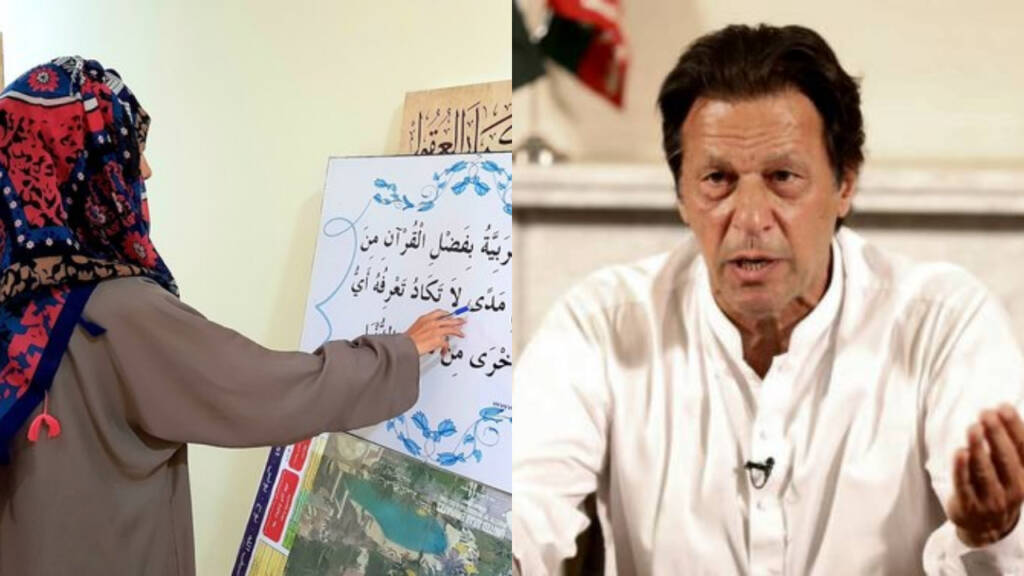A debt-ridden country like Pakistan often has to bend over backwards to appease its masters and lenders so as to ensure that the loans continue to be passed in a hassle-free way. After its traditional allies, Saudi Arabia and UAE severed their ties with Pakistan after Imran Khan’s zeal for forming a parallel Islamic body on the lines of Organisation of Islamic Countries, Pakistan is now using the age-old language card by making Arabic a mandatory language in schools to appease the Arabs in a desperate bid to placate them and urge them to provide further loans to the cash-strapped country.
Only a handful of geostrategic experts would have envisaged that Saudi Arabia and UAE would not only abandon Pakistan and stop granting loans to the cash-strapped country but also ask for early repayment of existing loans, such is the predicament of Pakistan under the stewardship of Imran Khan.
Now, Pakistan has gone back to the oldest trick in its book as Pakistan Senate has unanimously passed a bill which makes the teaching of Arabic mandatory in the nation’s federal capital.
The ‘Compulsory Teaching of Arabic Language Bill 2020’ which had been introduced as a private member’s bill by Javed Abbasi of the PML-N earlier in August 2020, states that the Arabic language will be taught from class I to V and grammar from VI to XII.
The law will be applicable to “the students in all educational institutions of Islamabad Capital Territory (ICT), including educational institutions affiliated with the Federal Board of Intermediate and Secondary Education and all public sector institutions owned and controlled by the federal government, wherever they may be”.
The bill states, “There shall be in all educational intuitions compulsory teaching of (a) Arabic language in classes, grades or, as the case may be, level I to V in a prescribed manner; and (b) the grammar of Arabic language in classes, grades or, as the case may be, levels VI to XII in such prescribed manner so that proficiency in Arabic language is completed up to class, grade or, as the case may be, level XII.”
There’s absolutely no ambiguity in what the bill desires to achieve – firstly, to placate Pakistan’s Arab masters and secondly, to have a deeper understanding of the Holy Quran written in Arabic.
The bill reads, “besides having religious importance for Muslims, Arabic is among the five largest spoken languages of the world. A large number of population from around the world seeks to do business and employment in the rich Arab states. Thus, knowledge of Arabic language will not only enlighten the understanding of Islam and the message of Holy Quran, it will also broaden the employment and business opportunities for the citizens of Pakistan as well.”
Pakistan People’s Party (PPP) Senator Raza Rabbani voiced his dissent against the bill, however, he didn’t vote against the bill. He rather approved of the bill from the first day, the state has been making efforts to impose Arabic culture on Pakistan.
“Arabic culture is not my culture. Indus Valley Civilisation is my culture,” thundered Rabbani. Unfortunately for Rabbani, his views received backlash from all the parties.
It is pertinent to note that in lieu of China’s Belt and Road Initiative (BRI), Pakistan had earlier failingly attempted to make Mandarin compulsory. Rabbani’s party colleague, Rehman Malik argued that if they could learn Chinese only for monetary gains, what’s wrong in learning Arabic.
Talks about Mandarin, the predominant language used in China, to be made compulsory in schools around Sindh and Punjab did the rounds in the government circles all through 2011-15. This was, however, repealed following widespread public protests.
Read More: Is Pakistan turning into a Chinese colony?
The language card is outdated and unless Pakistan course corrects its way, there’s no chance that the Arab World led by Saudi Arabia and UAE would forgive Pakistan for its attempts to crown Turkey President Erdogan as the leader of the Islamic World.
